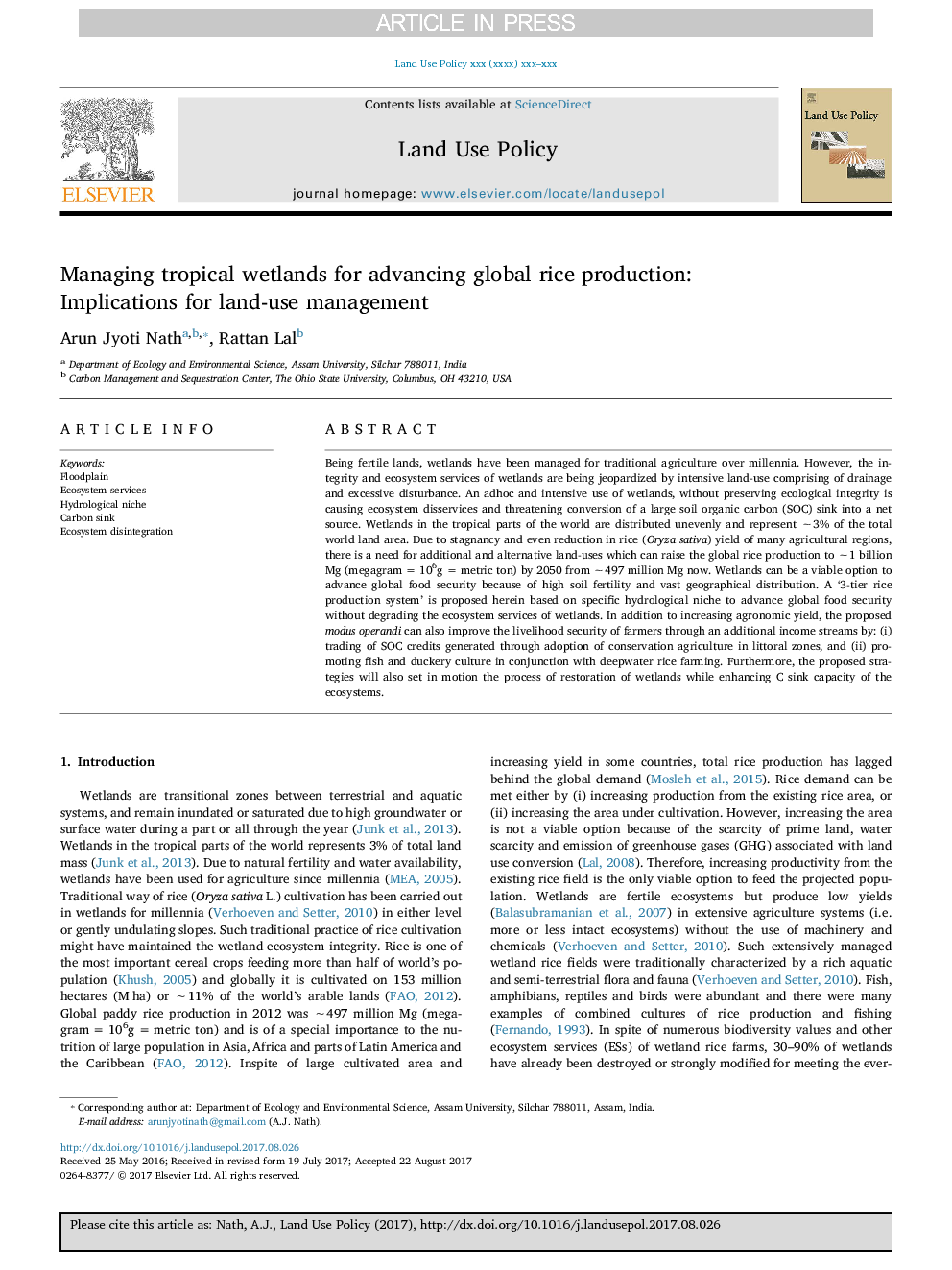ترجمه فارسی عنوان مقاله
مدیریت تالاب های گرمسیری برای پیشبرد تولید برنج جهانی: پیامدهای مدیریت استفاده از زمین
عنوان انگلیسی
Managing tropical wetlands for advancing global rice production: Implications for land-use management
| کد مقاله | سال انتشار | تعداد صفحات مقاله انگلیسی |
|---|---|---|
| 100240 | 2017 | 5 صفحه PDF |
منبع

Publisher : Elsevier - Science Direct (الزویر - ساینس دایرکت)
Journal : Land Use Policy, Volume 68, November 2017, Pages 681-685
ترجمه کلمات کلیدی
سیب زمینی، خدمات محیط زیستی، طاقچه هیدرولوژیکی، سینک کربن، تجزیه اکوسیستم،
کلمات کلیدی انگلیسی
Floodplain; Ecosystem services; Hydrological niche; Carbon sink; Ecosystem disintegration;

